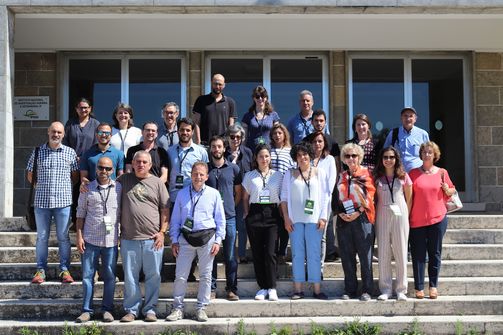
EWRS Working Group:
Weed Management Systems in Vegetables
Objectives
The working group was established to improve integrated and organic weed management in vegetables and minor crops. The main objectives of working group are to collect and disseminate information and results on weeds and weed control strategies in vegetables and minor crops, identifying gaps in knowledge, focusing new research projects, encouraging collaborative research programme.
The WG aims to improve the development of the Integrated Weed Management System to support farmers to produce healthy and environmentally sustainable vegetables. Considering the main peculiarities in the production of vegetables and minor crops (i.e. high number of grown species, the large variability of farming systems characterised by a large variability of technological level, marketing and commercial ability, different growing systems and destination) and the consequent complexity in the research activity on the Integrated Weed Management, the WG activities play a crucial role thanks to the involvement of members from different countries that can concur to drive research and practical solutions.
The main topics involved in the WG activity are: (i) weed population management strategies by sound cultural weed control methods (e.g. adequate crop rotations, accurate soil tillage and stale seed‐bed preparation, competitive cultivars and crop spatial distribution, transplanting instead of sowing) that favours the crop relative to the weeds, reduces the weed seed‐bank, regulates weed communities and prevents the build‐up of adapted species; and (ii) an integration of non‐chemical and chemical weed control by adopting methods with a low selection pressure on weed communities, weed economic thresholds (density thresholds and critical period of weed competition), post‐emergence control, optimal herbicide doses and herbicide behaviour in the environment.
Other information
The results of this WG are published on the Web and drawn to attention of researchers, crop extension services, farmers and policy makers.
For more information and joining the Working Group please contact the WG leader
